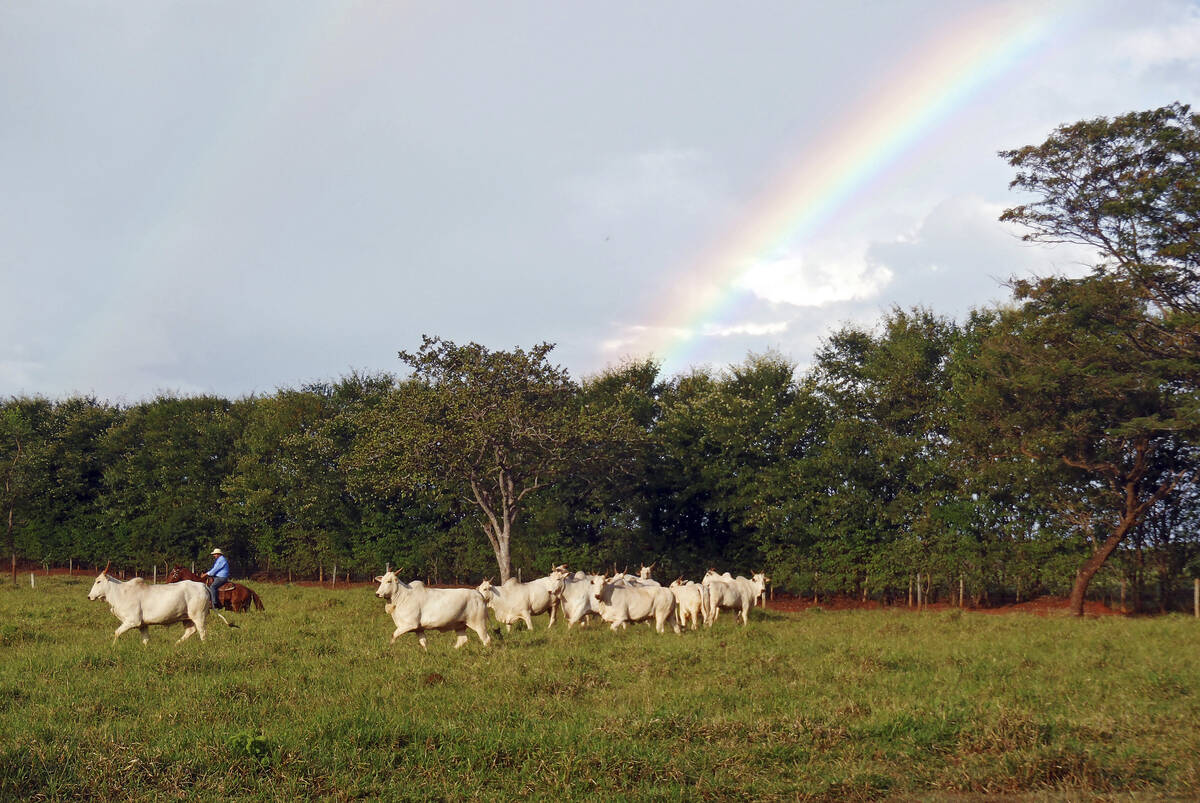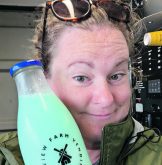One seldom becomes restless about the known; rather, about what you don’t know. So it was with me at age 17 when the summer of 1977 arrived.
As one of four Manitoba farm boys, Mom relented and said I could get a summer job. Maybe I could make a few dollars and discover the working world. My brothers would cover for me with Dad and the Basswood farm chores. To me, it sounded like freedom. Perhaps adventure.
I had heard about a Minnedosa Esso station needing a gas jockey. I borrowed my parent’s 1960 Chevy pickup and raced 20 kilometres for a first-ever job interview. Mr. Jacobson hired me immediately, claiming to like the work ethic of farmers’ sons. And then in no position to bargain, I agreed to the minimum wage, $2.95 an hour. Ouch.
Read Also

Investigation links green fuel to deforestation
A Texas refinery that supplies green fuel to U.S. airlines has been purchasing animal fat from cattle raised on illegally cleared lands in the Amazon rainforest, according Reuters.
The Esso station, with a combined Voyageur Restaurant, stood at Manitoba’s crossroads — the Yellowhead Highway going east-west, and Highway 10, leading to Riding Mountain National Park to the north and Brandon to the south.
My summer job there supplied uncommon lessons for life.
Hockey superstar Bobby Hull stopped by one evening en route from Winnipeg to Edmonton. I worked up the nerve to ask him where he was going. I gassed up his sedan and checked the oil.
To my dismay, I had to tell Bobby that his Buick’s oil level was down two quarts. Shouldn’t a pro hockey player have a flunky to inspect his car?
I added the oil and presented the bill. He paid up. He then signed two extra credit card slips for my younger brothers. Bobby scribbled “keep on farming Tim,” and “keep on tilling Ron.”
My brothers have misplaced both notes — their financial loss in this age of Kijiji sales, and the re-birth of those hockey Jets.
A month later, The Rhythm Pals of the Tommy Hunter Show pulled in. Mike and Jack explained they had recently fallen out with Tommy.
Later, I sadly related that to my guitar-playing, folk-singing mom. Ida was Tommy’s most-devoted fan. The hefty Mark didn’t explain anything though — he was asleep, sprawled out ingloriously in the back seat. His snores and grunts had no usable musical value.
My introduction to Americans came via a sturdy southern teenager who was punching and tilting the outside pop machine.
“This here pop machine done drank my drink,” he proclaimed in a lethargic twang, a sound foreign to my ears.
He continued to rock the machine. I mildly chastised him. I proceeded to explain that his American coins had probably jammed the machine.
“They ahhll look ahhlike to me,” he drawled and sauntered away.
The price of gas “jumped” from 87 cents per gallon to 89 cents that summer — an outrage, some people said. “Blame it on the oil companies,” advised Mr. Jacobson, “or blame it on government taxes.”
Sandy, the comely 21-year-old waitress, brought me hot peach cobbler from the Voyageur next door. Her alluring voice and cinnamon-scented dessert all robbed me of my ability to think clearly. Inevitably, my acceptance of free food led to her being “too busy” at midnight closing for her lock-up chores. And so I caved in to cleaning the ladies’ washroom.
Mr. Jacobson regularly assigned me the 4 p.m. to midnight shift because I was new, young, energetic and likely didn’t need much sleep. Only our faithful farm dog, Rover Junior, greeted me coming home at 1 a.m.
The back fix-it shop had a tire-changing machine, not really meant for gas jockeys.
After watching Mr. Jacobson use it, I knew I could handle it — the skill could become useful. Sure enough, a lady showed up with a flat trailer tire and an attitude. The loud, arrogant sophisticate demanded action even though it was just past closing time.
I changed her tire and sent her on her way at 1 a.m. The next day Mr. Jacobsen asked me about it. He claimed it was likely an expensive tire-change fee. However, I faced no retribution.
A fellow pulled up needing gas, but he had no money. What possessed me to ask what he may have to pawn? Wordlessly, he popped open the trunk to expose a 30-30 rifle.
Hey, my dad only had a .22 so this was more firepower. I told the desperate customer I’d exchange him $15 worth of gas for it, and he’d have two weeks to pay up, or the rifle was mine. He agreed. I reached for the gas pump nozzle. The next day Mr. Jacobson told me he didn’t like me dealing “guns-for-gas,” but he was laughing when he said it.
A month later he gave me the unclaimed gun. I quickly sold it to my buddy Wayne for 20 bucks.
I discovered an unexpected listening ear for my teenage angst. And unlike Lucy of the cartoon Peanuts, Donna heard me out for no charge. She was across the parking lot and ran the Tourist Information booth. She was a high school class-mate, had a non-judgmental demeanour, and explained the world to this occasionally naïve farm boy.
Aug. 16, 1977, was an unremarkable day until mid-afternoon — then Elvis died. In the pre-CNN, pre-internet world, breaking news came via the car radio. Every customer had to tell me Elvis overdosed and died — they of furrowed brow and hushed voice.
When I first responded nonchalantly, “yeah, I already heard,” I noticed they became visibly disappointed. I quickly changed my tone to that of surprise. In fact, I began to ask my gas buyers their favourite Presley song as part of my “the king is dead” therapy. Customers loved it. If only I would have placed a tips jar on the counter.
Although the same baby-blue colour as young April’s eyes, my family’s old farm Chevy did not help me with that lovely Grade 11 beauty — she of Farrah Fawcett hairstyle.
Unbelievably, April resisted going to a movie. Why? I blamed the pick-up truck. It couldn’t have been my blossoming Esso oil-baron career or my teenage acne.
My mild-mannered high school gang brought me ice cream, fresh carrots, and small-town news updates. They’d hang around during the late hours of the fading day. They were low maintenance. They only stared silently when I counted the loot.
And they were content with the conversation topics: hockey/girls, politics/girls, movies/girls, high school/girls. Even today, some of their stories begin with, “remember that summer when you were working at the 4 & 10 Esso.”
A year later, my life changed quickly. My parents sold the family farm and moved to British Columbia, I graduated from high school, my classmates dispersed, I summer jobbed in Alberta, and in September, I trekked off to university in Indiana.
A few years ago on a Calgary to Ontario trek, I routed through Minnedosa and swung past the old haunts. Alas, Imperial Oil has razed the 4 & 10 Esso and Voyageur. The vacant lot is home to wisps of yellow clover — and my summer of ’77 memories.














